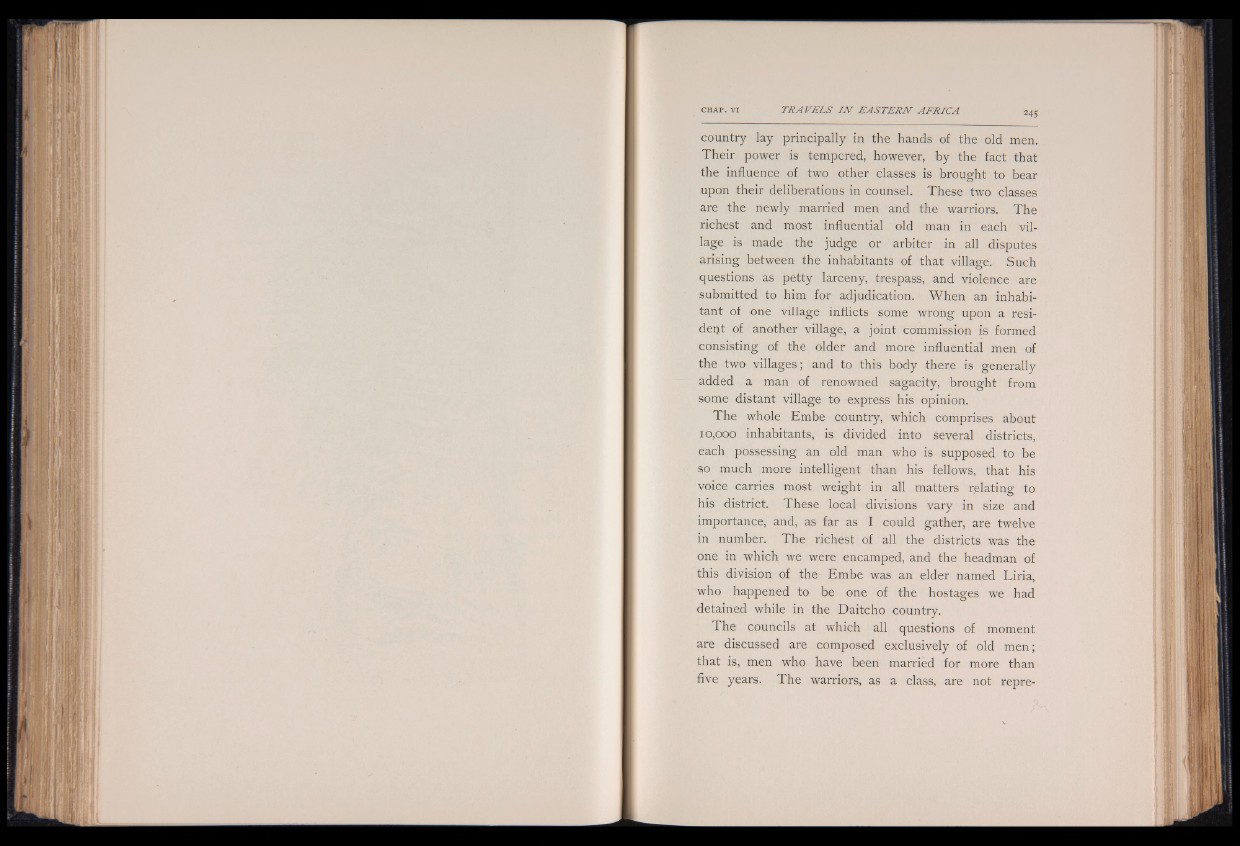
I F
V
mvJMi
245
country lay principally in the hands of the old men.
Their power is tempered, however, by the fact that
the influence of two other classes is brought to bear
upon their deliberations in counsel. These two classes
are the newly married men and the warriors. The
richest and most influential old man in each village
is made the judge or arbiter in all disputes
arising between the inhabitants of that village. Such
questions as petty larceny, trespass, and violence are
submitted to him for adjudication. When an inhabitant
of one village inflicts some wrong upon a resident
of another village, a joint commission is formed
consisting of the older and more influential men of
the two villages; and to this body there is generally
added a man of renowned sagacity, brought from
some distant village to express his opinion.
The whole Embe country, which comprises about
10,000 inhabitants, is divided into several districts,
each possessing an old man who is supposed to be
so much more intelligent than his fellows, that his
voice carries most weight in all matters relating to
his district. These local divisions vary in size and
importance, and, as far as I could gather, are twelve
in number. The richest of all the districts was the
one in which we were encamped, and the headman of
this division of the- Embe was an elder named Liria,
who happened to be one of the hostages we had
detained while in the Daitcho country.
The councils at which all questions of moment
are discussed are composed exclusively of old men;
that is, men who have been married for more than
five years. The warriors, as a class, are not repre